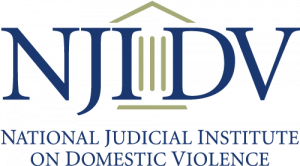Elder abuse, or abuse in later life, remains a pervasive yet invisible problem. The vast majority of elder abuse and neglect cases are never identified or reported although the number of reported cases of elder abuse increases each year. Currently, the justice system and service providers struggle to meet the unique needs of the elder population, and existing service models often fall short.
Further, the absence of safety mechanisms to assess the dangerousness of offenders and to address older perpetrators poses challenges for courts and their communities. With the number of persons over 65 in the U.S. expected nearly to double in the next two decades, the justice system must take an active role in improving the way it identifies and responds to cases of elder abuse.
Our Work
To ensure a comprehensive judicial approach to addressing elder abuse and abuse in later life, the NCJFCJ provides educational opportunities, technical assistance, and training to courts and court-related professionals throughout the country.
Enhancing Judicial Skills in Elder Abuse Cases Workshop
Since 2007, through the NCJFCJ’s National Judicial Institute on Domestic Violence, a partnership with Futures Without Violence and supported by the U.S. Department of Justice, Office on Violence Against Women, the NCJFCJ has convened the seminal Enhancing Judicial Skills in Elder Abuse Cases Workshop for tribal, state, and territorial court judges and judicial officers across the country.
The NCJFCJ also works with judges and other professionals, including the National Clearinghouse on Abuse in Later Life, to develop materials and presentations on elder abuse tailored to the needs of state or local jurisdictions. In addition to judicial education, the NCJFCJ draws on the expertise of its multidisciplinary staff to provide resources, research, and consultation to professionals on legal, policy, and court processes related to elder abuse.
Our Results
Since 2007, the NCJFCJ has trained more than 600 judges on elder abuse through its National Judicial Institute on Domestic Violence project, with nearly 400 trained through the Enhancing Judicial Skills in Elder Abuse Cases Workshops. Through these highly interactive, hands-on judicial workshops, judges have returned to their communities with a greater ability to identify vulnerable persons, engage in effective prevention and intervention strategies that respond to the individualized needs of each victim and improve case outcomes, and develop a stronger sense of their courtroom and community roles to help prevent and end elder abuse.
Our Vision
The NCJFCJ envisions a justice system that works effectively and appropriately to prevent, identify, and intervene in elder abuse cases and to increase abuser accountability. Judges and other professionals should apply solutions to elder abuse cases that enhance victim safety and protection while promoting the autonomy and well-being of elders. Judges should take an active leadership role in their communities and courts to create elder-friendly courtrooms, engage in public education to change attitudes about elder abuse, and promote multidisciplinary collaboration of key stakeholders.
